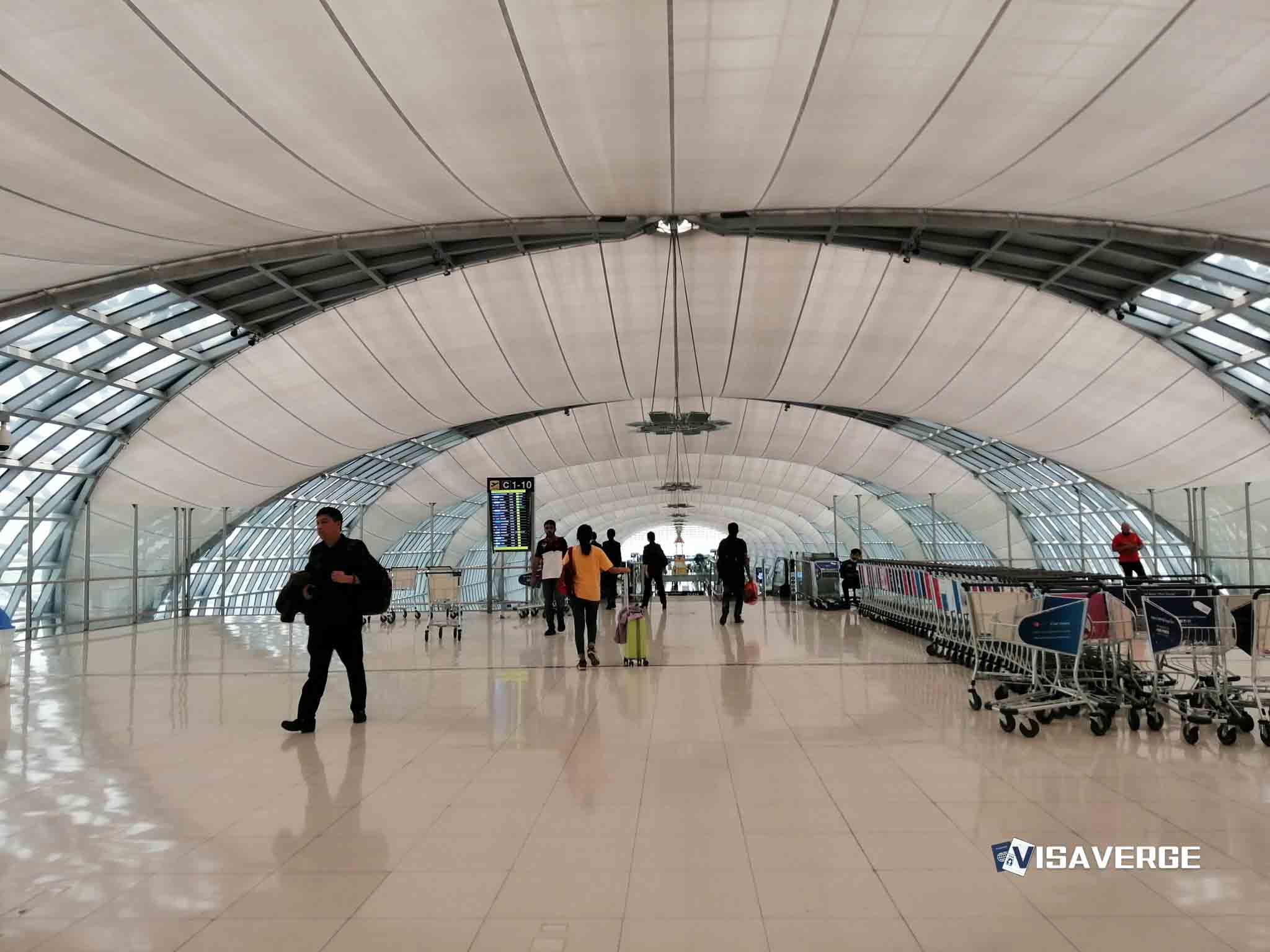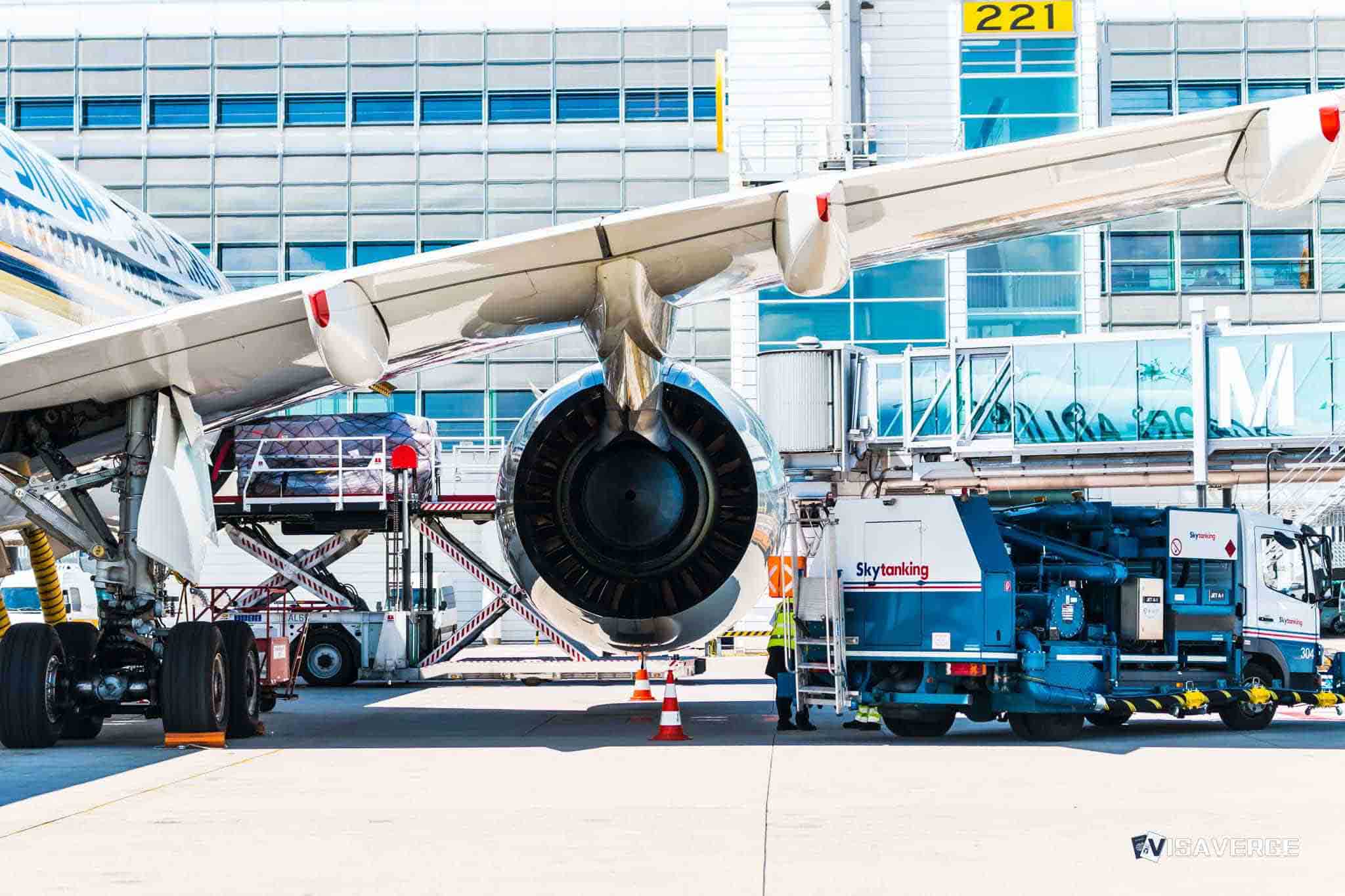Key Takeaways
• Ukrainian and Afghan refugees in New Hampshire qualify for special state-funded support through 2025 despite federal pause.
• Refugees arriving before the 2025 Federal Resettlement Pause maintain limited access to housing, jobs, and medical services.
• Asylum seekers face reduced services but can access community help, legal aid, and advocacy groups like NHAIR.
If you are a refugee or asylum seeker in New Hampshire in 2025, it’s important to know what support is available, who qualifies, and what steps you can take if you are not eligible for certain programs. The situation has changed a lot because of the Federal Resettlement Pause, but there are still some resources and ways to get help. This guide will help you figure out if you qualify for support, what you need to do, and what your options are if you don’t meet the requirements.
Who Qualifies for Refugee and Asylum Seeker Support in New Hampshire (2025)?

The main groups that may qualify for state-level support in New Hampshire right now are:
- Ukrainian and Afghan refugees: These groups have special state-funded support through 2025.
- Refugees already living in New Hampshire: If you arrived before the Federal Resettlement Pause, you may still get some help.
- Asylum seekers and other immigrants: Some services are available, but they are more limited due to funding cuts.
Let’s break down the eligibility for each group and what support you can expect.
1. Ukrainian and Afghan Refugees
Do you qualify?
Yes, if you are a Ukrainian or Afghan refugee living in New Hampshire in 2025.
Requirements:
– You must be from Ukraine 🇺🇦 or Afghanistan 🇦🇫 and have refugee status.
– You must be living in New Hampshire.
– You must contact a local resettlement agency or the New Hampshire Department of Health and Human Services (DHHS), Office of Health Equity.
What support is available?
– State-funded programs: These include help with housing, employment, school enrollment, English classes, and medical care.
– Access to community services: You can get help from organizations like Ascentria Care Alliance and the International Institute of New England.
– Advocacy and integration programs: Groups like the New Hampshire Alliance of Immigrants and Refugees (NHAIR) offer community support and help you get involved locally.
Example:
If you are a Ukrainian family who arrived in New Hampshire in 2024, you can still get help with finding a place to live, enrolling your children in school, and getting a job. The state has set aside funds just for Ukrainians and Afghans, so you will not be affected by the federal funding freeze.
Disqualifying factors:
– If you are not from Ukraine or Afghanistan, you do not qualify for this special state-funded support.
– If you moved to New Hampshire after the Federal Resettlement Pause and do not have refugee status, you may not be eligible.
2. Refugees Already Living in New Hampshire
Do you qualify?
Yes, if you arrived in New Hampshire as a refugee before the Federal Resettlement Pause in early 2025.
Requirements:
– You must have arrived in the United States 🇺🇸 as a refugee before the pause.
– You must be living in New Hampshire.
– You should contact a local resettlement agency to check what services are still available.
What support is available?
– Short-term assistance: Refugees usually get up to 90 days of help with housing, jobs, school, English, and medical care.
– Ongoing support: Some agencies, like Ascentria Care Alliance, are still helping refugees with things like citizenship applications and community integration, but services may be limited.
– Advocacy and community programs: You can join programs like Welcoming New Hampshire for support and community events.
Example:
If you arrived in New Hampshire as a refugee from Syria in 2023, you may have already received your initial 90 days of help. You can still reach out to Ascentria Care Alliance for advice or support, but some services may be reduced because of the funding freeze.
Disqualifying factors:
– If you arrived after the Federal Resettlement Pause, you may not be eligible for the same level of support.
– If you are not a recognized refugee, you may not qualify for these programs.
3. Asylum Seekers and Other Immigrants
Do you qualify?
Maybe. Support for asylum seekers and other immigrants is more limited, but some help is still available.
Requirements:
– You must be living in New Hampshire.
– You should contact local organizations like Ascentria Care Alliance or NHAIR to see what services are open to you.
What support is available?
– Limited case management: Some agencies can help you with basic needs, legal referrals, and community connections.
– Advocacy and education: NHAIR and similar groups offer workshops, community events, and help with understanding your rights.
– Private donations and community support: Because federal funding is frozen, many services rely on private donations and volunteers.
Example:
If you are an asylum seeker from Central America living in New Hampshire, you may be able to get help with finding a lawyer, learning English, or connecting with other immigrants. However, you might not get the same level of support as refugees from Ukraine or Afghanistan.
Disqualifying factors:
– If you are not living in New Hampshire, you cannot access these state-specific programs.
– If you do not contact a local agency, you may miss out on available help.
How to Check Your Eligibility and Apply for Support
To find out if you qualify for support and to get started, follow these steps:
- Contact a Local Resettlement Agency
- Ascentria Care Alliance: Call 603.224.8111 or visit their Concord office at 261 Sheep Davis Road, A-1, Concord, NH 03301.
- International Institute of New England: Reach out for information about available services.
- Complete a Service Referral Form: Ascentria Care Alliance has an online form you can fill out. A staff member will contact you to discuss your needs.
- Reach Out to Advocacy Groups
- NHAIR (New Hampshire Alliance of Immigrants and Refugees): Connect through their Facebook page or the Welcoming New Hampshire website for community support and advocacy.
- Check State Programs
- New Hampshire DHHS, Office of Health Equity: Visit their official website for up-to-date information on refugee support services and eligibility.
- Gather Required Documents
- Proof of your immigration status (refugee, asylum seeker, etc.)
- Proof of residence in New Hampshire (lease, utility bill, etc.)
- Any paperwork from the agency that helped you arrive in the United States 🇺🇸
- Ask About Special Programs
- If you are Ukrainian or Afghan, mention this when you contact agencies, as you may qualify for extra support.
What If You Don’t Qualify? Alternative Options
If you find out you are not eligible for state-funded refugee support in New Hampshire, don’t give up. There are still some ways to get help:
- Community Groups and Churches: Many local groups offer food, clothing, and basic support to immigrants and refugees, regardless of status.
- Legal Aid Organizations: Some non-profits provide free or low-cost legal help for asylum seekers and immigrants.
- English Language Classes: Libraries and community centers often have free English classes open to everyone.
- Job Search Help: Some organizations help immigrants find jobs, even if they are not part of the official refugee program.
- Private Donations: Agencies like Ascentria Care Alliance are using private donations to keep some services running, so ask if there are programs funded this way.
How to Improve Your Chances of Getting Support
- Stay Connected: Keep in touch with local agencies and advocacy groups. They often know about new programs or emergency funds.
- Volunteer or Join Community Events: Being active in the community can help you learn about resources and make important connections.
- Keep Your Documents Up to Date: Make sure you have all your paperwork ready, as this can speed up the process if new programs open up.
- Ask for Referrals: If one agency can’t help, ask them to refer you to another group that might have resources.
Disqualifying Factors for State-Level Support
It’s important to know what might stop you from getting help:
- Not living in New Hampshire: These programs are only for people living in the state.
- Arriving after the Federal Resettlement Pause: If you came to the United States 🇺🇸 after the pause, you may not qualify for most state-funded refugee programs.
- Not having official refugee or asylum status: Some programs require proof of your status.
- Not being from Ukraine or Afghanistan: Special state funding is only for these groups right now.
Examples of Real-Life Scenarios
- Maria, a Ukrainian Refugee: Maria arrived in New Hampshire in 2024. She contacted Ascentria Care Alliance, filled out the referral form, and received help with housing and job training. She also joined English classes at a local library.
- Ahmed, an Afghan Refugee: Ahmed and his family arrived in 2023. Even after the Federal Resettlement Pause, they continued to get support through state funding, including help enrolling their children in school.
- Luis, an Asylum Seeker from El Salvador: Luis arrived in 2025, after the pause. He did not qualify for state-funded refugee support, but NHAIR helped him find a lawyer and join a community group for Spanish speakers.
Key Agencies and Contact Information
- Ascentria Care Alliance: 261 Sheep Davis Road, A-1, Concord, NH 03301; Phone: 603.224.8111
- International Institute of New England: Contact for resettlement and employment services.
- NHAIR: Find them on Facebook or through the Welcoming New Hampshire website.
- New Hampshire DHHS, Office of Health Equity: Main state resource for refugee support.
Recent Policy Changes Affecting Eligibility
- Federal Resettlement Pause: No new refugee arrivals and no new federal funding as of early 2025. This affects all agencies in New Hampshire.
- State Funding for Ukrainians and Afghans: Special support continues through 2025 for these groups.
- Reduced Services for Other Groups: Many services for other refugees and asylum seekers have been cut or are limited.
What’s Next? The Future of Refugee Support in New Hampshire
The future is uncertain. Agencies like Ascentria Care Alliance and the International Institute of New England are doing their best to keep helping people, but they are running low on funds. Advocacy groups and local leaders are pushing for the federal government to restart the refugee program, but there is no clear timeline.
What You Can Do:
– Stay informed: Check the New Hampshire DHHS Office of Health Equity for updates.
– Join advocacy efforts: Groups like NHAIR are working to protect immigrant and refugee rights.
– Support each other: Community support is more important than ever.
As reported by VisaVerge.com, the Federal Resettlement Pause has made it much harder for refugees and asylum seekers to get help in New Hampshire, but state-level efforts and community support are keeping some services alive. If you are not sure if you qualify, reach out to a local agency—they can help you figure out your options and connect you with resources.
Summary Table: Who Qualifies for Support in New Hampshire (2025)
| Group | Qualifies for State Support? | Main Requirements | Where to Get Help |
|---|---|---|---|
| Ukrainian/Afghan Refugees | Yes | Refugee status, living in NH | Ascentria, DHHS, NHAIR |
| Refugees (arrived before 2025 pause) | Yes (limited) | Refugee status, arrived before pause | Ascentria, International Institute |
| Asylum Seekers/Other Immigrants | Maybe (very limited) | Living in NH, contact local agencies | NHAIR, community groups |
| Refugees (arrived after 2025 pause) | No (most cases) | Arrived after pause, not from UA/AF | Community groups, legal aid |
Final Takeaways
- Check your eligibility by contacting local agencies.
- If you qualify, apply as soon as possible—funds and services are limited.
- If you don’t qualify, look for community groups, legal aid, and advocacy organizations.
- Stay connected and keep your documents ready in case new programs open up.
- Advocate for change by joining local efforts to support refugees and immigrants.
For the most up-to-date information, always check with the New Hampshire DHHS Office of Health Equity and reach out to trusted local organizations.
Learn Today
Federal Resettlement Pause → A 2025 federal halt stopping new refugee arrivals and related funding nationwide.
Refugee Status → Official designation allowing protection and resettlement in the U.S. for fleeing persecution.
Asylum Seeker → An individual requesting protection abroad due to fear of persecution, awaiting legal approval.
Resettlement Agency → Organizations like Ascentria that assist refugees with housing, employment, and integration services.
State-funded Support → Government assistance provided by New Hampshire specifically for refugees from Ukraine and Afghanistan.
This Article in a Nutshell
New Hampshire offers state support to Ukrainian and Afghan refugees through 2025 amid a federal freeze. Refugees from earlier arrivals get limited aid. Asylum seekers have fewer resources but can access assistance through local agencies and community groups during this challenging transition period.
— By VisaVerge.com








